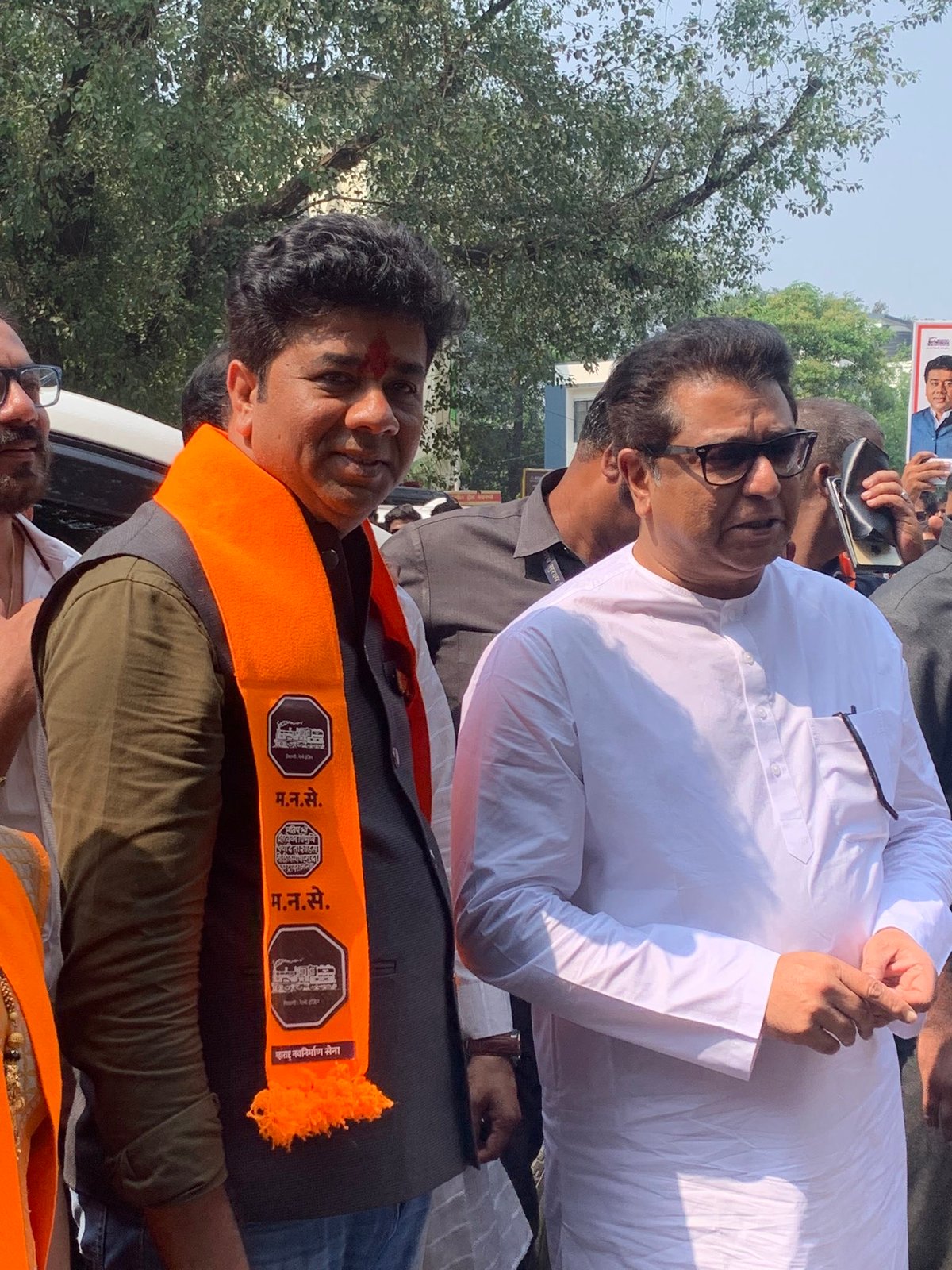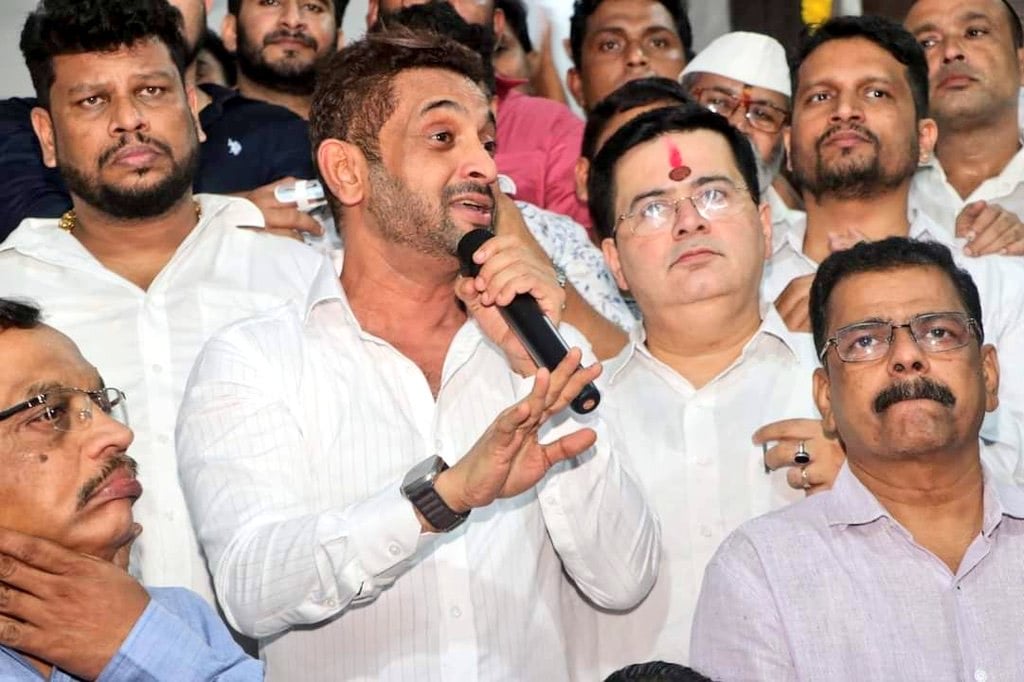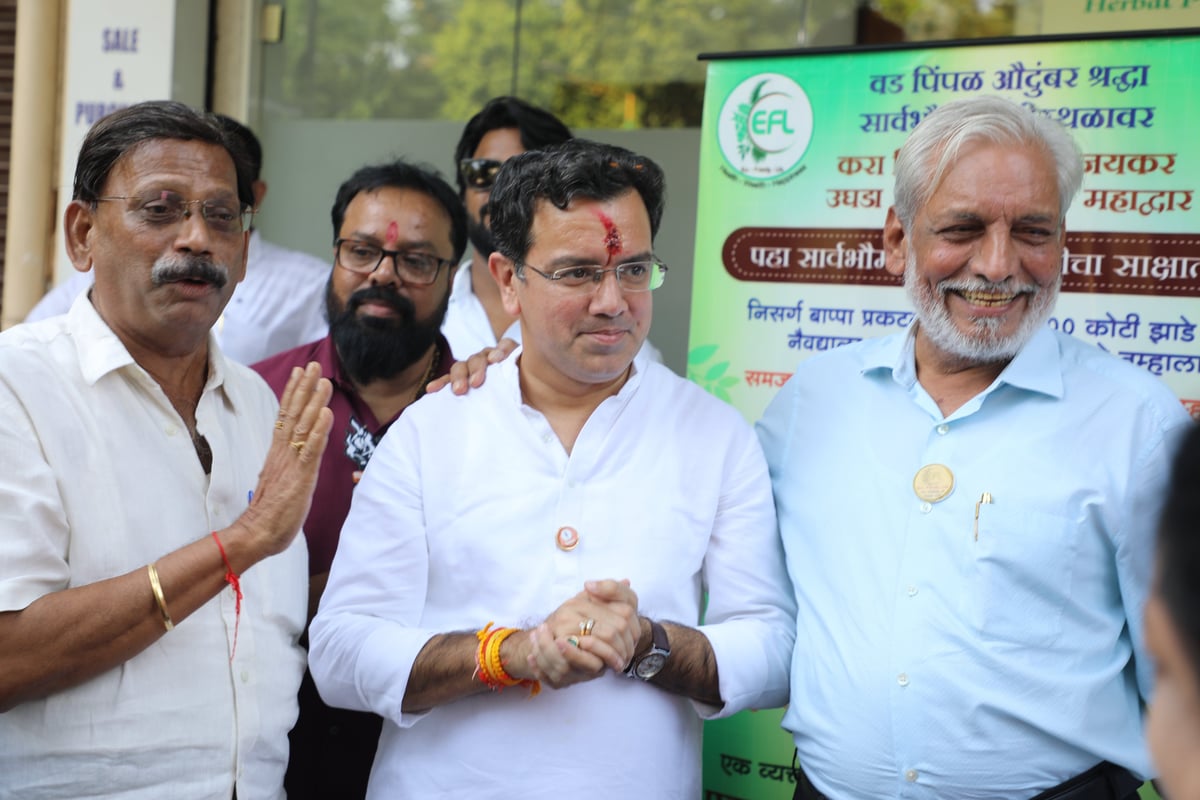Thane: As Thane readies itself for the imminent assembly elections, the political atmosphere is thick with tension, anticipation, and monumental stakes. With only ten days remaining until voting day, the narrative across Thane’s three primary constituencies—Thane City, Kalwa-Mumbra, and Kopari Panchpakhadi—promises a complex tapestry of rivalries, alliances, and an exploration of the electorate’s evolving sentiments.
Thane City Assembly Constituency: The Battle of Legacy and Loyalty
In the Thane City Assembly Constituency, the upcoming electoral clash has transformed into a gripping three-way contest. Sanjay Kelkar, the current BJP MLA who is seeking a historic third term, finds himself mired in controversy and factional discord within his own ranks. His critics have encapsulate the discontent brewing among local BJP office bearers and former MPs who feel marginalized by the party’s decision to endorse Kelkar once more.
Sanjay Kelkar |
The Deputy Chief Minister, Devendra Fadnavis’s visit to Thane to formally file Kelkar’s nomination provided a semblance of reassurance for the incumbent, yet the underlying discontent may signal significant electoral challenges ahead. His primary rival, Rajan Vichare, a veteran leader from Shiv Sena (Uddhav Balasaheb Thackeray) and a former MP himself, is keen to exploit any fissures within the BJP base. Vichare’s past credibility and longstanding association with Shiv Sena UBT may attract traditional voters disillusioned by Kelkar’s tenure, which has failed to convincingly address their pressing concerns.

Veteran leader Rajan Vichare |
Adding a layer of complexity is the candidacy of Avinash Jadhav from the Maharashtra Navnirman Sena (MNS). Jadhav has sought to galvanize the youth by championing various local agitations over the past five years, nurturing a public persona that resonates well with younger marathi voters. The constituency, home to 374,153 residents representing a diverse demographic that includes Marathi, Gujarati, Koli, and Muslim communities, confronts myriad electoral concerns ranging from the dire need for redevelopment of dilapidated housing to chronic traffic congestion and increasing crime rates.

MNS candidate Avinash Jadhav |
Kalwa-Mumbra Assembly Constituency: A Personal Rivalry Emerges
The electoral landscape of the Kalwa-Mumbra constituency is equally charged, particularly as Jitendra Awhad, the incumbent NCP Sharadchandra Pawar (SP) MLA, prepares to defend his seat against Najeeb Mulla, once his protégé but now a formidable adversary. This rivalry has intensified against the backdrop of a recent schism within the Nationalist Congress Party (NCP), which has given rise to a competitive dynamic that pits Awhad’s experience and established voter base against Mulla’s emerging influence, bolstered by backing from Deputy Chief Minister Ajit Pawar.

Jitendra Awhad, NCP (SP) |
Awhad’s tenure, characterised by an ardent advocacy for issues concerning the Muslim community, educational access, housing, and employment, positions him as a champion of social justice in a constituency where Muslims constitute nearly 44 percent of the electorate. Nevertheless, his brusque demeanor and contentious relationships within the party have contributed to increasing dissent, complicating his re-election campaign.
Mulla’s campaign strategy aims to transcend communal narratives, focusing on broader developmental issues. His past controversies, including legal troubles tied to allegations surrounding a builder’s suicide and the murder of a prominent RTI activist, create a complex character for the voter to consider. Mulla’s assertive claims that Awhad has neglected essential developmental needs in the constituency may resonate with voters seeking tangible progress over the partisan legacy of the past.

Najeeb Mulla, NCP |
Adding further complexity is the presence of a strong candidate from the All India Majlis-e-Ittehad-ul-Muslimeen (AIMIM), Saif Pathan, who could siphon off votes from Awhad’s core support base. The intertwining themes of development, community welfare, and the challenge of internal dissent make this election a high-stakes affair for Awhad as he navigates the finest nuances of voter sentiment and party dynamics.
Kopari Panchpakhadi Assembly Constituency: A Political Duel of Legacy
In the Kopari Panchpakhadi constituency, an intriguing clash is brewing between Shiv Sena UBT’s Kedar Dighe and Chief Minister Eknath Shinde. Dighe, who remains deeply enmeshed in the political legacy of his uncle, the late Anand Dighe, represents a poignant intersection of familial allegiance and contemporary political ambition. Leaders within the Shiv Sena suggest that his decision to align with Uddhav Thackeray during the party’s split indicates a commitment to the party’s foundational principles. This election could be a strong opportunity for him to carve out a unique political identity for himself.

Shiv Sena candidate CM Eknath Shinde |
Despite Dighe’s familial ties, skepticism surrounds his candidacy. Critics, including Shiv Sena MP Naresh Mhaske, argue that Dighe is being set up as a “bali ka bakra”, a scapegoat in a political arena dominated by Shinde’s experience and governance. Shinde, with nearly two decades of political tenure and the loyalty of an extensive party base, presents a nearly insurmountable obstacle to Dighe’s aspirations.

Kedar Dighe, Shiv Sena (UBT) |
The constituency has witnessed significant infrastructural developments under Shinde’s administration, which further complicates Dighe’s campaign narrative. His commitment to avoiding sentimentality by not overtly exploiting family legacies positions him as a candidate willing to engage with voters on practical grounds rather than emotional appeals.
As the campaigning heats up, Dighe may need to leverage his connection to Anand Dighe to attract core vote banks, while also addressing broader local grievances that extend beyond legacy politics. Within this battleground of ideologies, voters will have to balance emotional connections with pragmatic assessments of candidates’ abilities to bring about real change.
With the electoral landscape of Thane stands at a critical juncture, the upcoming assembly elections encapsulate larger themes of loyalty, ambition, community engagement, and ideological clashes. As each constituency contends with its unique challenges and narratives, voters are set to play a pivotal role in shaping not just the individual futures of various candidates but also the broader political trajectory of Thane.


